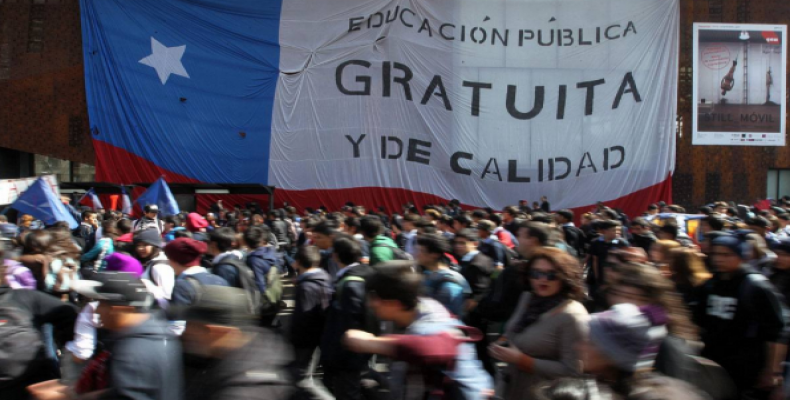Santiago de Chile, April 02 (teleSUR-RHC) Camila Vallejo, a representative of Chile’s Communist Party in the Chamber of Deputies, suggested on Wednesday that money to fund free higher education should come from higher taxes on business or cuts on armed forces funds.
The Chilean congress is currently discussing means of funding higher education in the country. The government of Michelle Bachelet has committed to providing universal higher education by 2016, in response to massive student protests over the last few years demanding serious reforms to the country's education system.
Chile's education system was privatized under the dictatorship of Augusto Pinochet and students have criticized it as being of poor quality and inaccessible to lower-income people. Students have also criticized the fact that many higher education institutions were making profits at the expense of the quality of their education.
The lower house recently passed a reform that makes it illegal for schools that receive a subsidy from the state to make a profit. The government also passed a major reform of the tax system in the country, aimed at increasing government revenue for social initiatives, such as free higher education.
However lawmakers have suggested that despite tax reform, there is still not enough money to fund universal higher education. The Ministry of Education is studying a proposal to charge a special tax on professionals who have completed higher education and earn a high wage.
Vallejo, who was a prominent leader of the student movement before being elected to the Chilean congress, rejected that idea and was quoted by local media saying, “I am more in favor of new taxes on business, on royalties and even resorting to the funds that are given to the armed forces.”
The vice-principal of the Council of University Presidents and the also criticized the proposal for a special tax on graduates, saying it goes against the idea of universal higher education. Representatives of Chile’s student movement echoed the concerns.
“What has been talked about is free (education), that's not free, it is a long term credit,” said Valentina Saavedra, president of the Federation of Students at the University of Chile.


